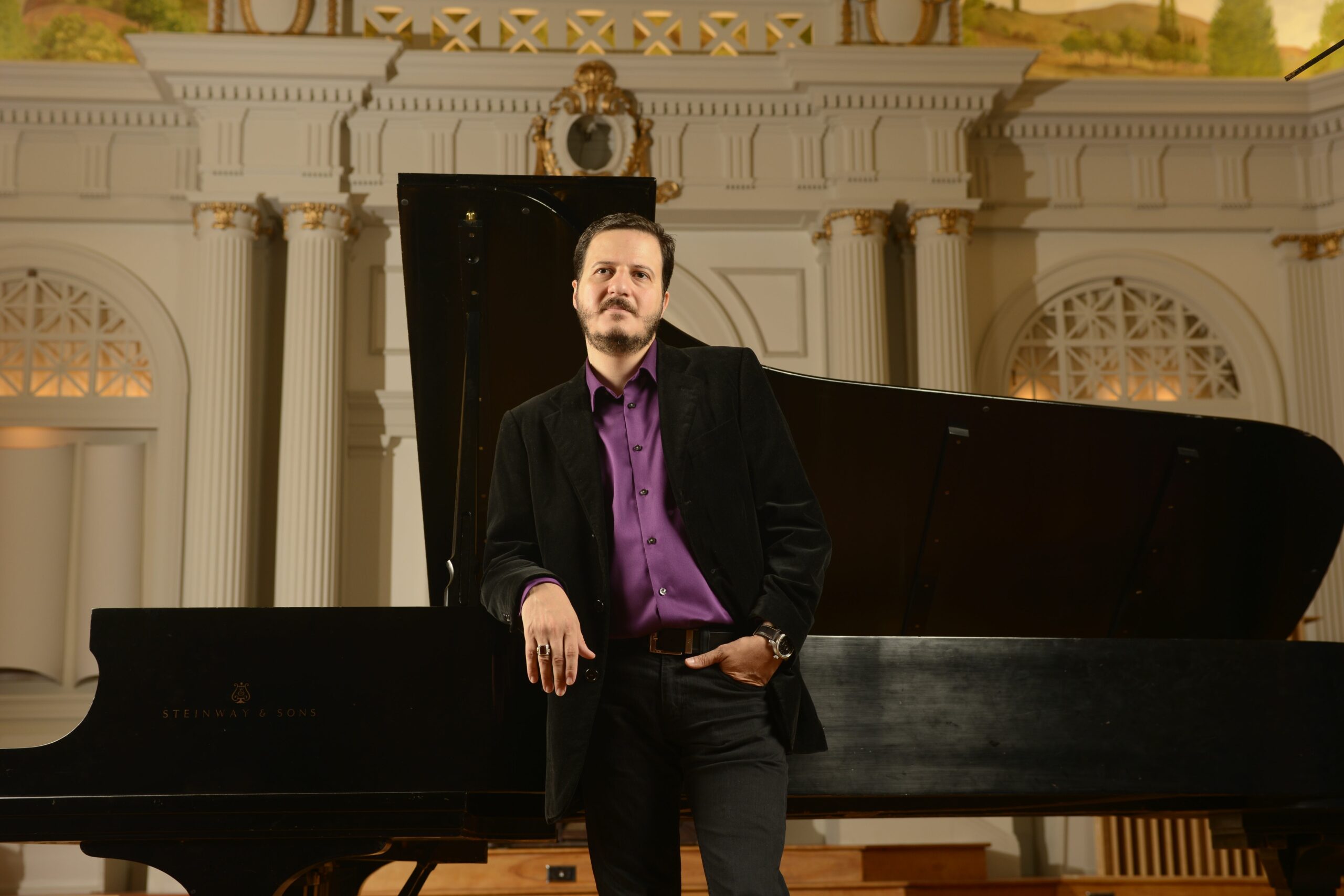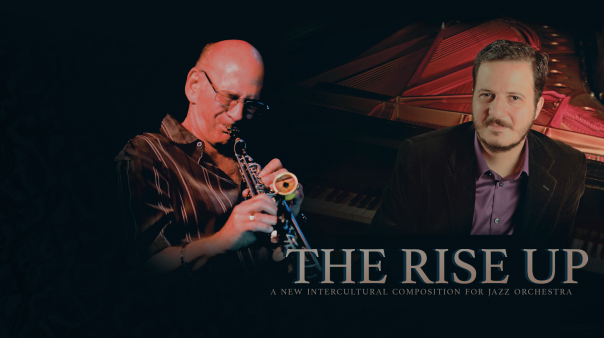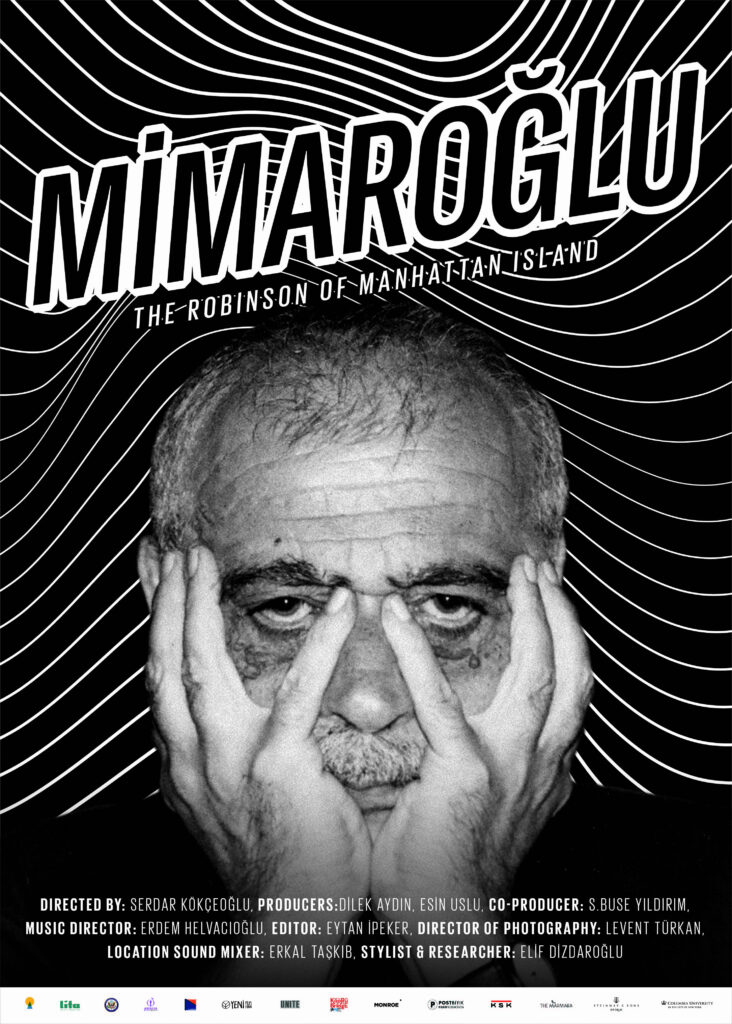Meet our Moon & Stars Project Grant Recipients for 2020!
“The Rise Up” by Mehmet Ali Sanlikol

Grammy-nominated composer and DownBeat Magazine Editor’s pick Jazz pianist Mehmet Ali Sanlikol hails from Cyprus and Turkey and is a full-time faculty member at New England Conservatory. A musical polymath, Sanlikol has composed for, performed and toured with international stars and ensembles such as Dave Liebman, Bob Brookmeyer, Billy Cobham, Anat Cohen, Esperanza Spalding, Antonio Sanchez, Tiger Okoshi, The Boston Camerata, A Far Cry string orchestra, American Composers Orchestra, and Erkan Oğur. Sanlikol’s unique blend of jazz composition and Turkish music has been praised by critics as “a true fusion of jazz and folkloric Turkish language and colors.”
The MASP grant will help fund the production of a studio recording of “The Rise Up”, an extended intercultural piece for jazz orchestra, featuring the NEA Jazz Master, saxophonist Dave Liebman. Mr. Liebman is an icon in American jazz, with a career that has spanned nearly five decades, beginning in the early 1970s as saxophone/flutist in both Elvin Jones and Miles Davis groups.

The piece is inspired by and structured around three episodes from Turkish history which chronicle dark and traumatic events followed by inspiration and/or transcendental creation. Each episode is comprised of 3 pieces and, the entire composition is made up of 9 non-stop sections in which Sanlikol provides carefully designed improvisational space for Dave Liebman while featuring multiple musical styles, Ottoman-Turkish rhythmic cycles, polymodality, and his unique inventions where American trumpeters use false fingerings in combination with extended tubings to perform precise microtones of the Turkish makam (mode) tradition. The first narrative centers around the great Sufi poet Rumi who composed some of the most beautiful mystical poetry ever written after the murder of his beloved teacher, Shams. The second story comes from the traditions of Sephardic Jews, expelled from Catholic Spain but welcomed by the Ottomans, leading to a cultural flowering treasured to this day. The third narrative tells the story of Mimar Sinan, taken by the Ottomans as a young boy who came to embrace his new Muslim identity and rose to great heights as the master architect of some of the greatest mosques in the world.
“Mimaroğlu” produced by Dilek Aydın

Dilek Aydin completed Film Studies at Boğaziçi University and pursued her Master’s Degree in Film and Television at İstanbul Bilgi University. While studying for her master’s, she attended Karlsruhe University of Arts and studied Media Art for a year. Returning to Turkey, she started working mainly in production, while developing and creating her own short films. She made various shorts and documentaries that met a variety of audiences around the world. In 2017, she founded Heimatlos Films, a production company that aims to produce universal documentaries about the homeless and fiction films. The last feature project the company produced, “Mimaroglu: The Robinson of Manhattan Island” was selected to participate in the Visions du Reel’s Burning Lights Competition. Today, she continues to develop feature fiction and documentary projects.
The MASP Grant will support Aydin to develop the website (www.mimaroglufilm.com) for a feature documentary film, “Mimaroglu”, on the life and work of İlhan and Gungor Mimaroglu, to be premiered at Visions du Reell.

İlhan Mimaroglu is known to be the pioneer in electronic music and a legendary jazz producer. He is the son of the famous Ottoman architect Mimar Kemaleddin. At an early age, he fell in love with jazz and experimental music, and in 1959 together with his lifelong partner Gungor Mimaroglu he moved to the U.S. His compositions made him one of the inventors of electronic music. His thinking was as avant-garde and challenging as his music was, so when his paths crossed with Arif Mardin and the Ertegün Brothers, he was adored by Atlantic Records. There, he became the producer of Charles Mingus and made a mark in music history. Frank Zappa and John Lennon have both cited Mimaroglu’s electronic compositions as influences, and Federico Fellini used one of his pieces in his film Satyricon in 1969.